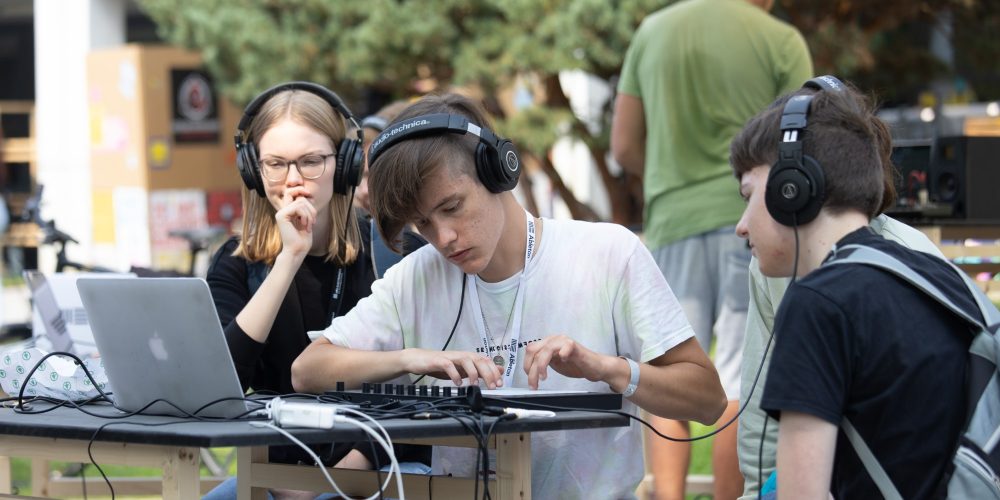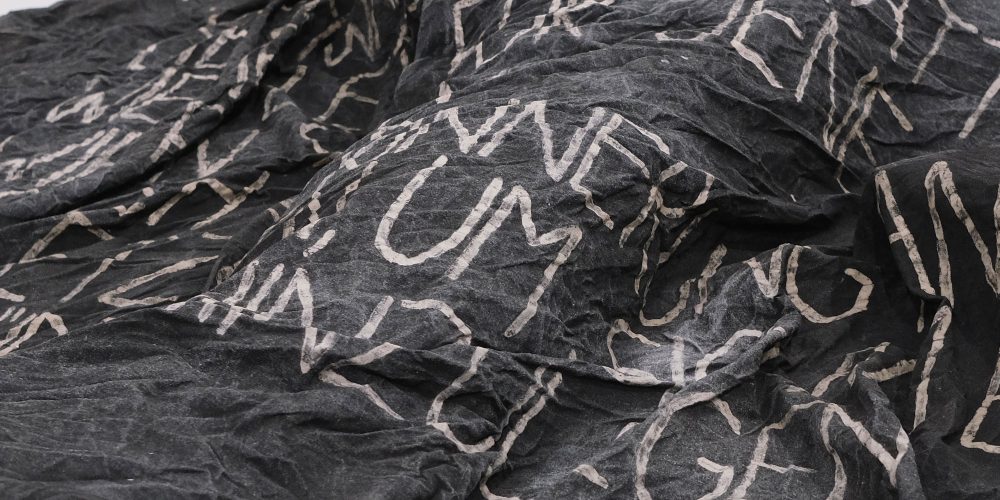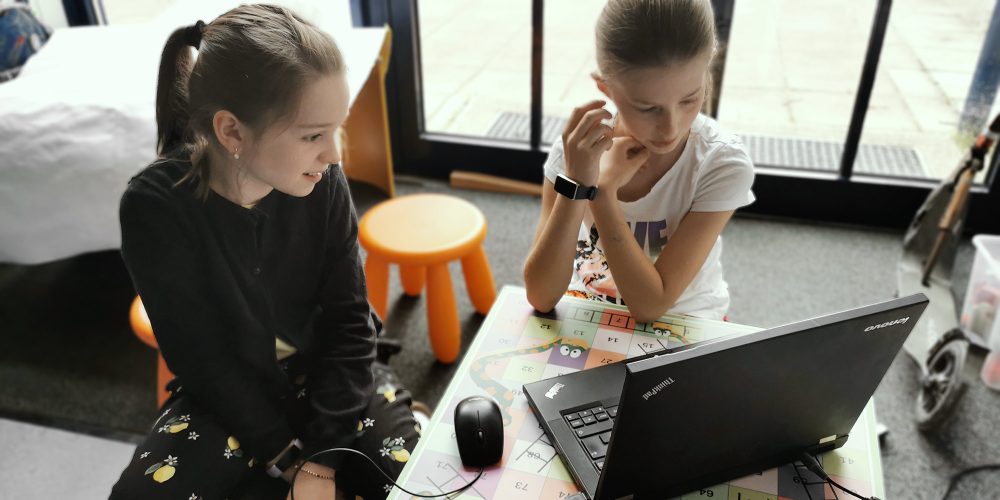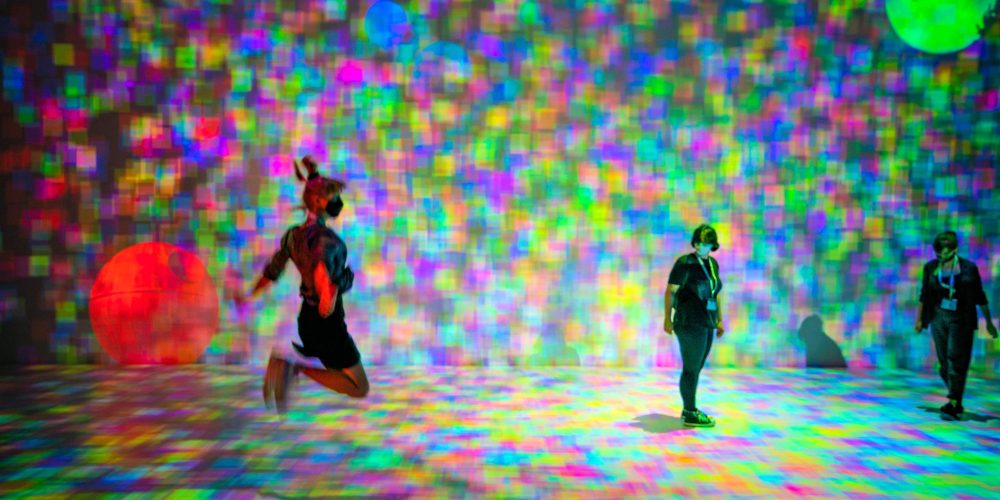
Artists, Creators, Engineers
-
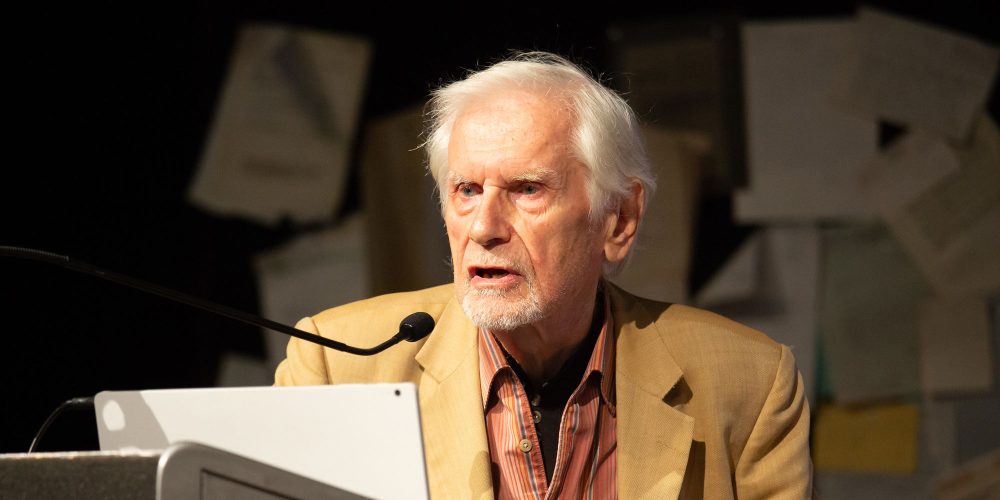
When Herbert W. Franke brought art and science together
With his multiple roles as scientist, author of science fiction novels and specialist for computer graphics, he gave a momentous impulse for many other media art festivals as co-founder of the first Ars Electronica in 1979. Herbert W. Franke passed away at the age of 95 on July 16, 2022.
-
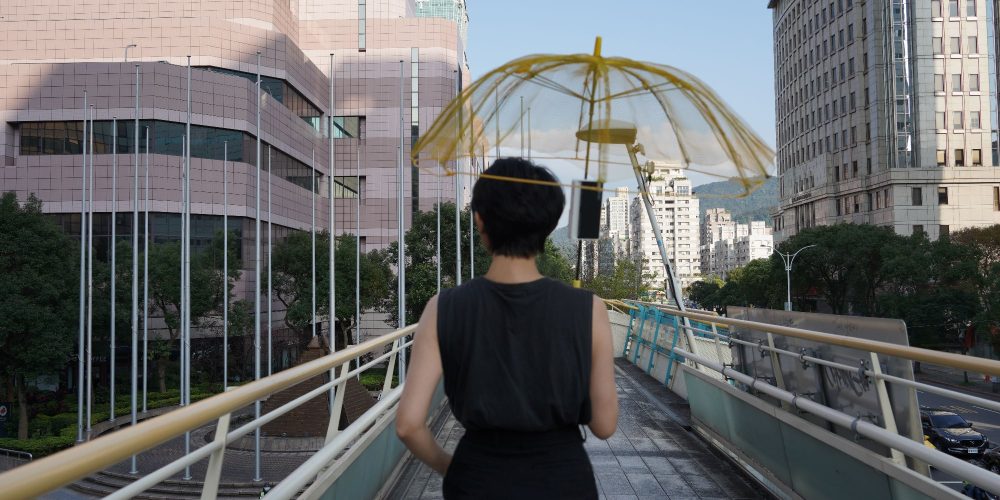
How to “resist like bacteria”
Find out what we can learn from bacteria and why the future lies in collaborative resistance through the artists behind the project “Bi0film.net – Resist like Bacteria”.
-
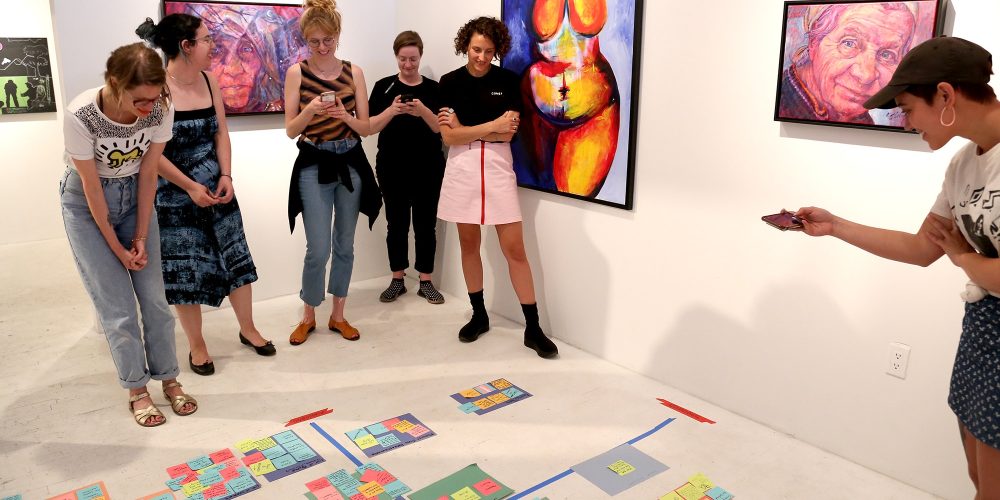
Is this a man’s world? Acknowledging gender bias in AI
Artificial Intelligence is fast becoming a major driving force of the rapidly accelerating digital transformation. Therefore, we have the responsibility to confront and question the gender biases inherent in AI models and seek ways to mitigate them.
-

Holly+: Come and sing like Holly Herndon!
“It takes a village to create something special” and Holly Herndon and her team have succeeded in doing just that. In the interview, she presents her machine learning project in more detail, for which she has now received the European Commission’s STARTS Prize 2022.
-
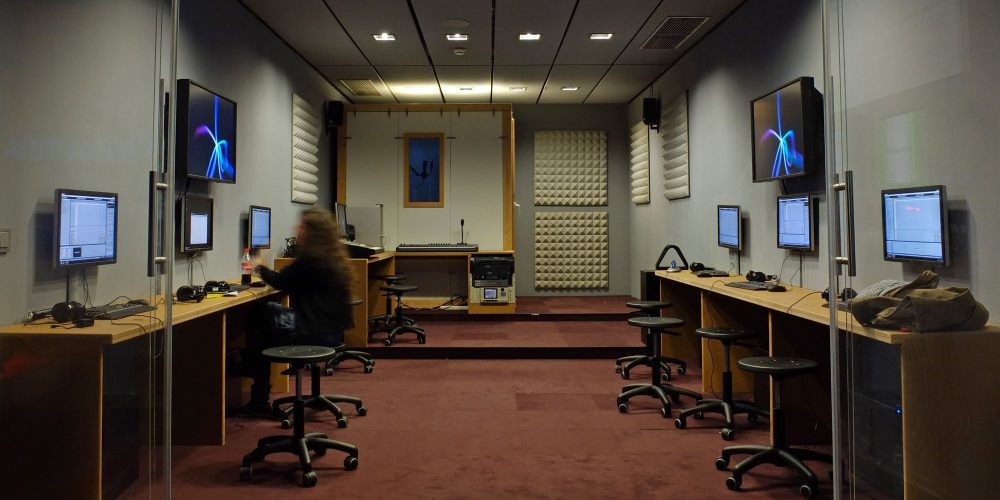
Throwback: SoundLab
The SoundLab at the Ars Electronica Center offered professional equipment for capturing and producing noise, sound and music.
-
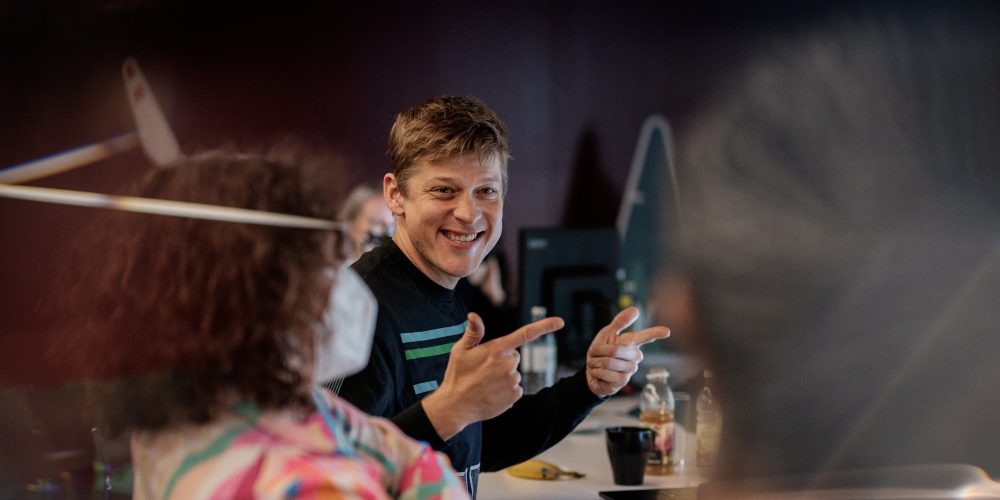
The Prix-Jury-Weekend 2022
Once again, 20 experts from around the world met in Linz to agree on the Golden Nicas of the Prix Ars Electronica 2022
-
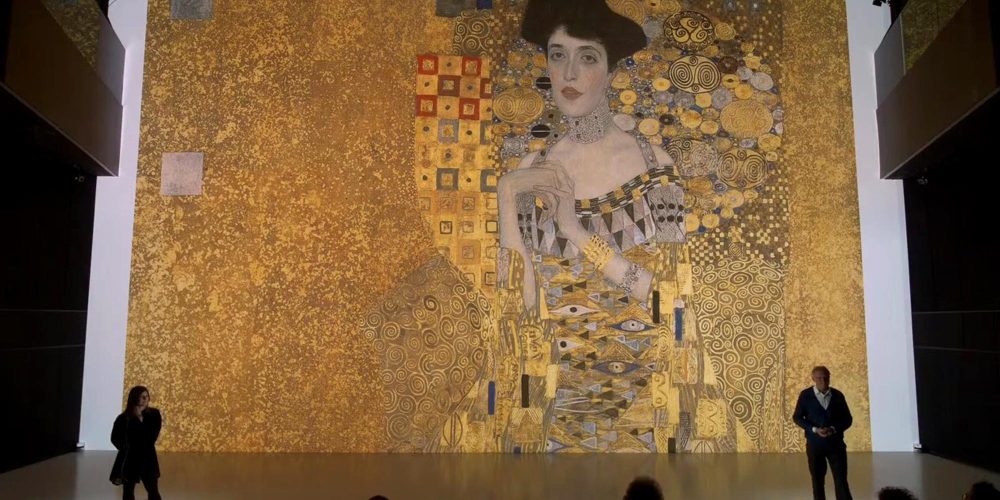
The Woman on the Picture
Gustav Klimt and Rebecca Merlic placed the image of the woman at the centre of their artistic work – an analysis.
-
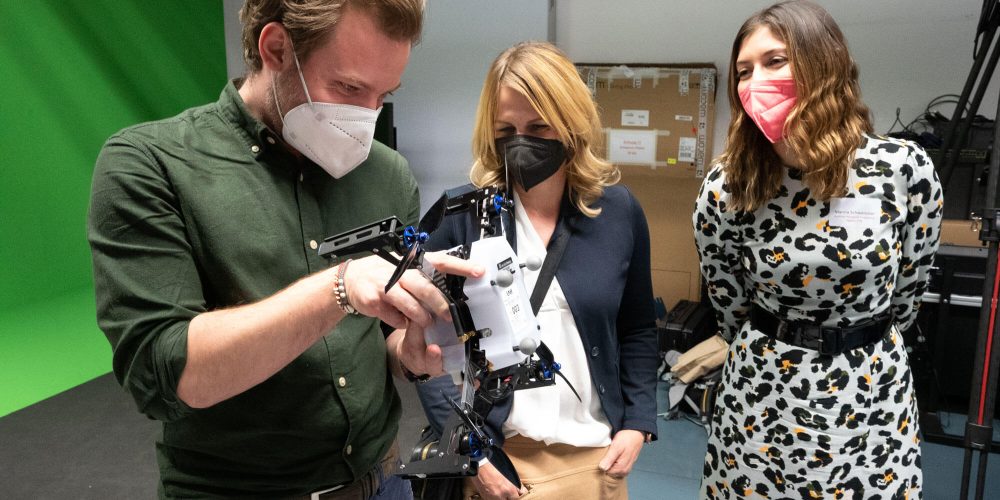
Swarm robotics up close
Drones merging to a digital canvas or painting with light: An Ars Electronica Futurelab workshop showcased the art of swarm robotics.
-
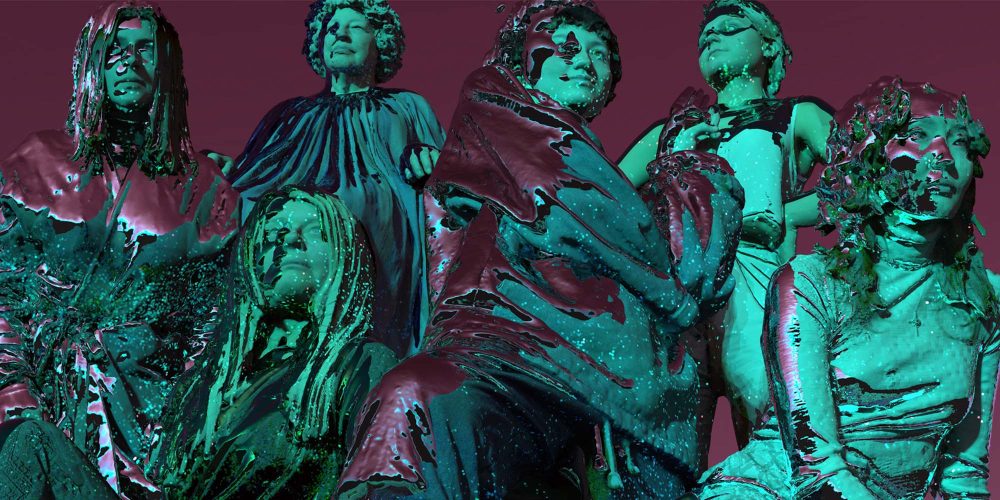
Merlic meets Klimt – the image of women then and now
On April 28, 2022, Gustav Klimt’s images of women will be in the spotlight. In this article, Franz Smola and Rebecca Merlic give you an insight into the topic of images of women.
-
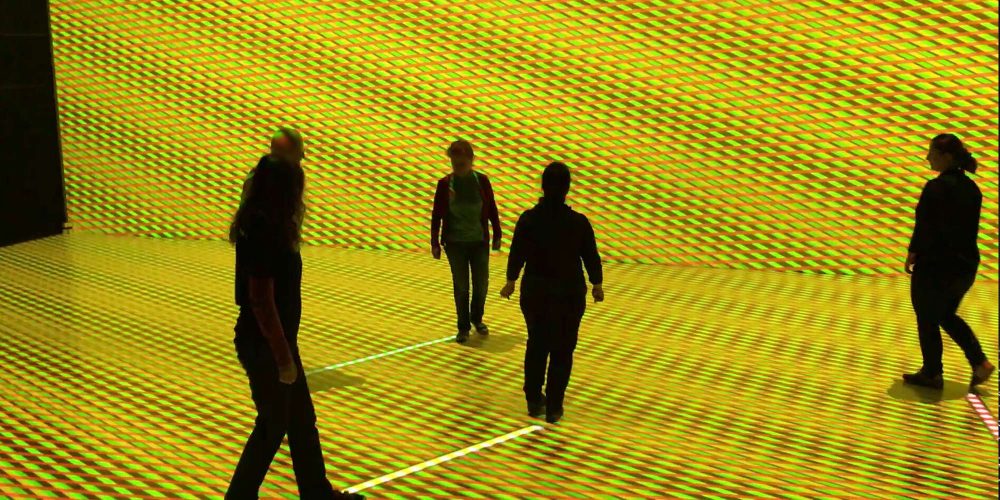
Crushed fruit and jumping dogs: TIME OUT .10
Two years late, TIME OUT is entering its next round. Students from the Linz Art University’s “Time-Based and Interactive Media Arts” program are showing selected works at the Ars Electronica Center.
-
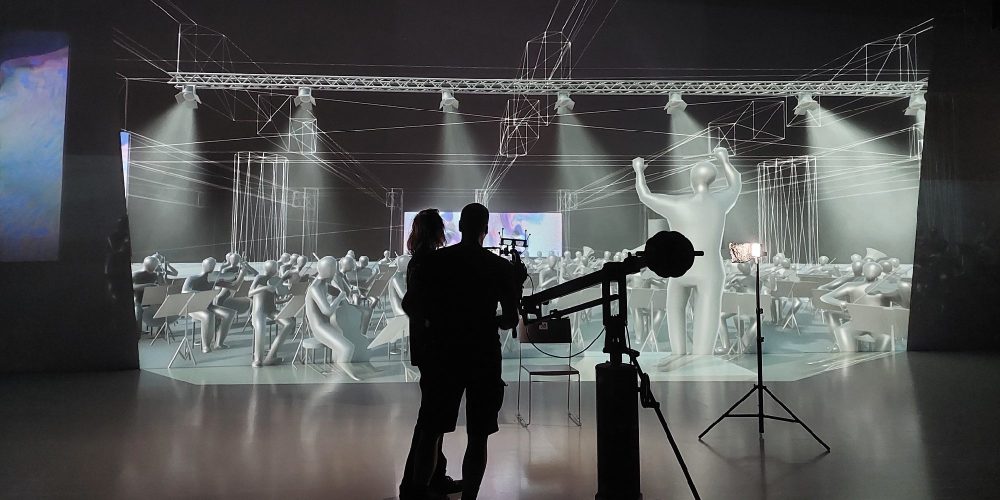
How to dive into hybrid reality
“Action!” The Ars Electronica Futurelab’s team shares its insights on the new video production system Deep Virtual.
-
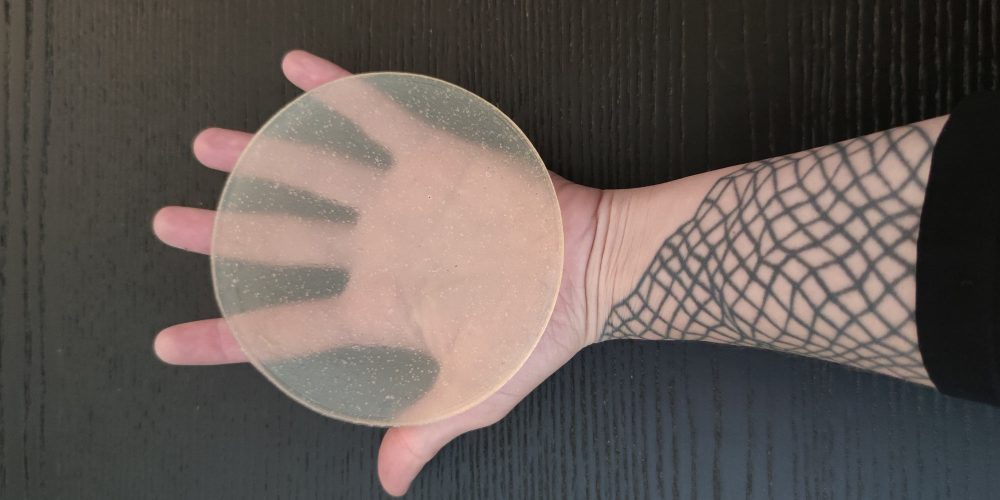
Circular Records for Circular Futures
Can records be made from biomaterials? Artists Kat Austen and Fara Peluso think so and will work on developing a low-carbon alternative to vinyl during their S+T+ARTS Residency.
-
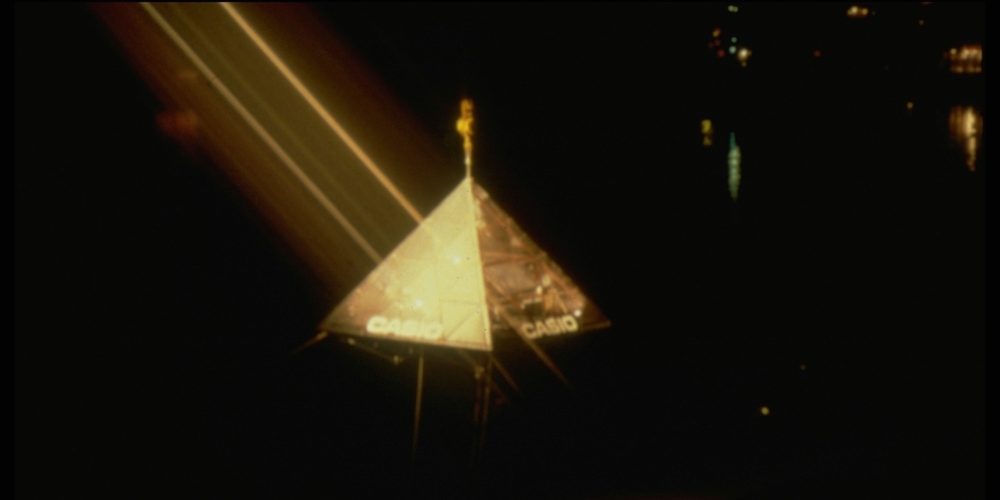
Throwback: UFOs over Linz
In a glass pyramid, 30 meters above the Danube, Isao Tomita enchanted the visitors of the Klangwolke 1984.
-

Throwback: The pioneer of the synthesizer
Robert Moog is considered a pioneer of the synthesizer. In the 80s, the American inventor honored us twice in Linz.
-
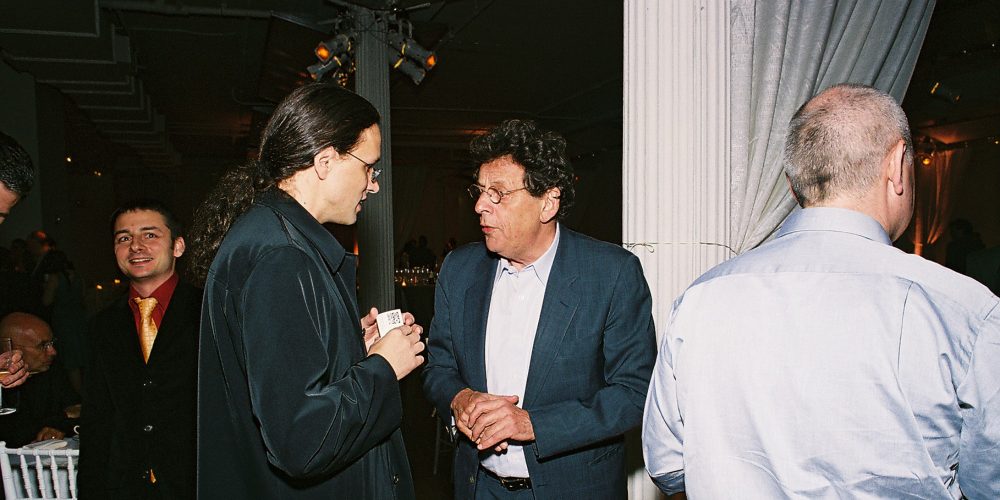
Happy Birthday, Philip Glass!
Philip Glass, the most famous representative of minimal music and longtime companion of Ars Electronica, celebrates his 85th birthday – we congratulate him!
-

Into the new year with our future experts
To kick off the new year, the Ars Electronica Futurelab is giving very special futurologists a chance to have their say.
-
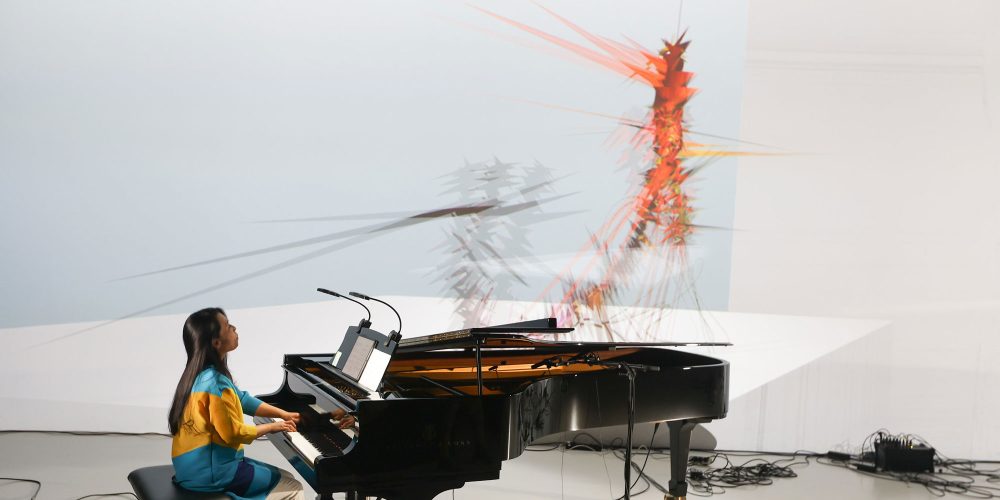
Morphologies – Digital Formations and Analog Music
Analog music generates digital visualizations: Maki Namekawa, Cori O’Lan and Rubin Kodheli in a timeless night performance at Deep Space 8K.
-
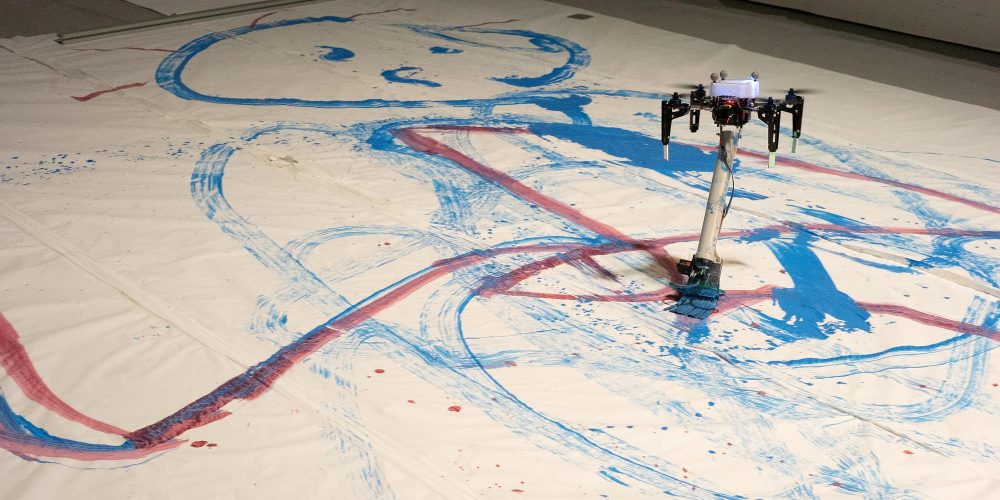
Space Ink – a future of visual arts?
With the Paintbrush painting drone, the Space Ink research project is opening a new chapter in the future of art.
-
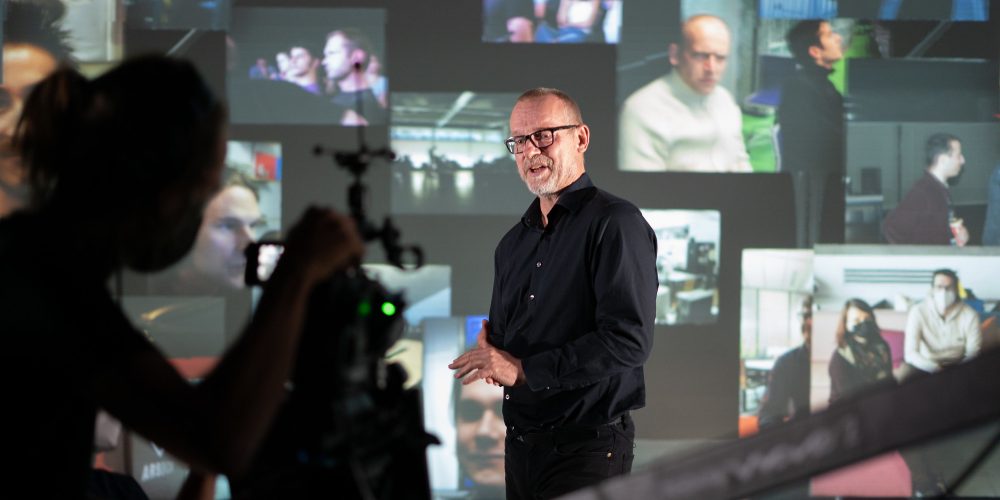
25 years of Futurelab – “What a journey!”
Exhibition, workshops, performances and the question of the future: This is how the Ars Electronica Futurelab celebrated its anniversary on the “Futurelab Day” 2021.
-
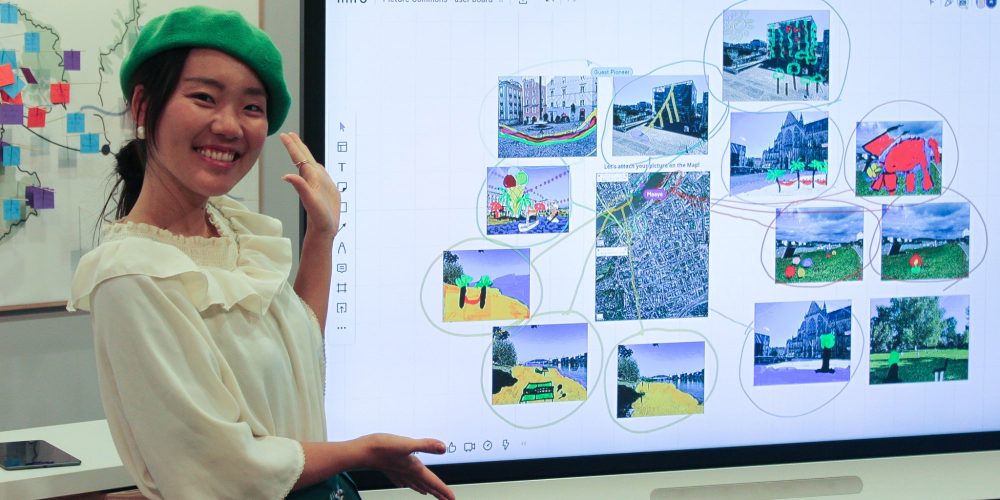
How to manage an organization like Ars Electronica
This is the question posed by participants in a new training program for cultural producers that provides insights into the way Ars Electronica works.
-
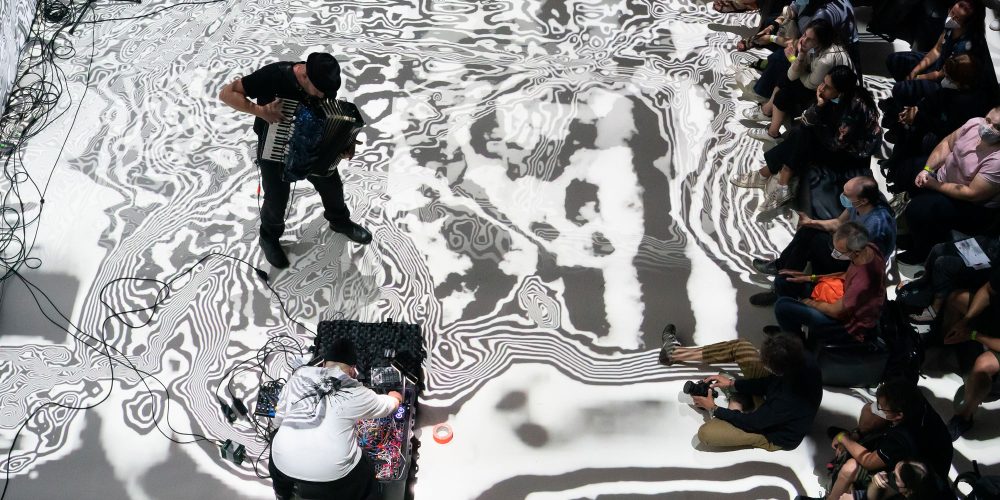
11°22’4”142°35’5” – Noise and Visuals in Deep Space 8K
Accordion Noise and Visual Performance 11°22’4”142°35’5” took us down to the deepest point of the Mariana Trench as part of the Ars Electronica Futurelab’s Night Performances in Deep Space 8K.
-
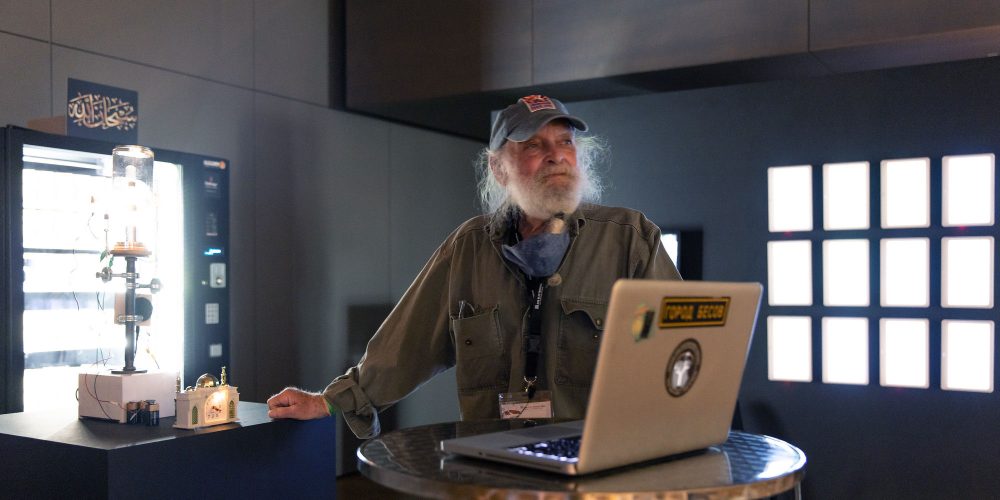
Joe Davis: In Search of Paradoxes
Just recently, Joe Davis and Sarah Khan stored 2,417 quintillion angels on the head of a pin. Reason enough to talk to the BioArt pioneer about the connection between art and science.
-
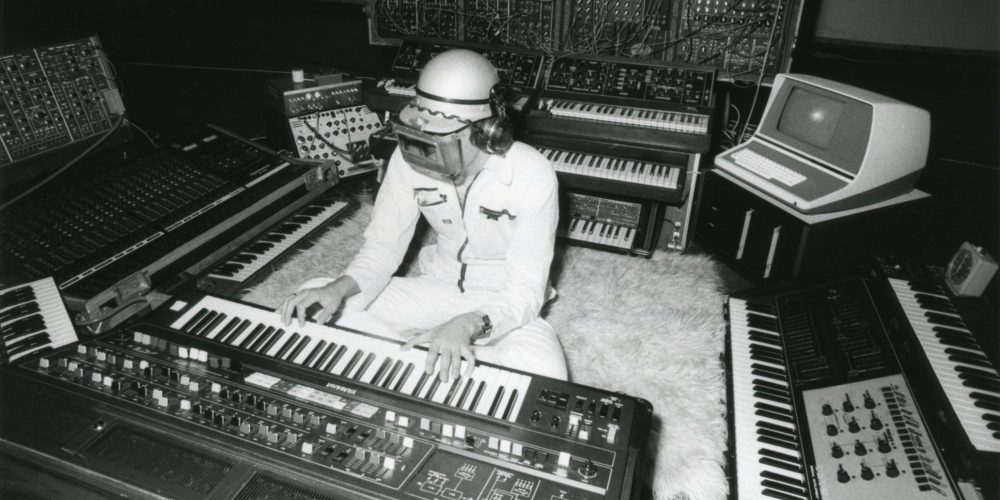
Throwback: Linz Steel Symphony
In 1980, electronic music pioneer Klaus Schulze opened the Ars Electronica Festival with a concert of live recorded sounds from the Linz steelworks voestalpine.
